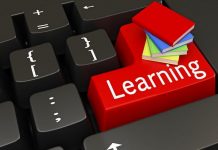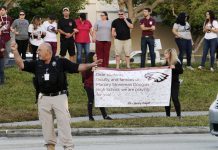By Mustafa Qureshi
Does remote learning make for good learning? Most of the voices we hear from tend to come down on one side of that question. Few of them, however, are students like me, who’ve actually had to adjust to a year or more of virtual school. For those of us who did, we learned valuable lessons. One of them? While schools have been failing us for some time, they don’t have to.
The events of the past year and a half present an opportunity to make seriously overdue changes to how we learn, which must include making remote learning part of our education. That’s because, for students like me, the challenge of keeping up with virtual school gave us an insight into adulthood.
In fact, it actually forced us to meet the needs of the ‘real world’, preparing us for how the world actually works, which is a stark contrast to how school normally functions.
The sad fact is that American schools are not only usually underfunded, and often unequal (especially racially), they’re even literally deadly. We learn less how to apply principles and ideas to new situations and more how to memorize answers for standardized tests that exist for the benefit of—well, not students, clearly.
How does an endless cycle of standardized measurements get us ready for a world where literally every industry is being reinvented from the bottom up?
Recent reports have only underscored how ill-prepared graduates are for the real world. Not that I was surprised to learn this. It’s my reality. I’ve known many kids, much like me, struggling to find jobs in a painfully competitive, technical and fluid economy. Considering that we’ve sat through school nearly every year of our life, this is beyond unacceptable.
And before the pandemic shocked our education system, we seemed resigned to our fates. But then COVID happened, forcing the entire education industry to evaluate how it functions, prove that it produces genuine benefits, and even justify its costs, infrastructure, and most basic assumptions.
For those of us who had to learn during this tumultuous time, we faced real challenges. But we also gained real benefits.
Remote learning, for one thing, offered students like me the most valuable lesson we can learn in preparation for grown-up life: Autonomy. During the months of lockdown, we learned skills that will undoubtedly benefit us for years and decades to come: Creativity, time management, agency, and resilience.
It’s worth pointing out that many students didn’t experience remote learning negatively. Research shows that because remote learning allowed students to learn based on what they need, they retained up to 60% more material. Amazingly, eight out of ten American college students agreed that online learning improved their grades, something that I experienced firsthand.
We were more responsible for our lessons, we had to function under less supervision – often building our own schedules – and we had to handle a global crisis that struck us all directly. In sum, many were forced to grow up, even if there were very real downsides of this worldwide calamity.
For example, remote learning often failed students with learning disabilities, who require personalized and direct engagement. And many families couldn’t afford or didn’t have access to the computers, the wi-fi, and the quiet, private spaces needed for effective remote learning. That’s not to mention that the isolation of the pandemic caused many young people stress, anxiety, and even depression.
All of these are important points. But all must be qualified.
For one thing, remote learning itself doesn’t necessarily create isolation, let alone mental health challenges. The pandemic was to blame for that. Financial limitations can and should be solved by creative economic and political solutions. (After all, public funds already support education. The question is what kinds of education we want to support—and why?)
And, of course, remote learning doesn’t have to be the only form of learning. It makes sense to offer young people a combination of virtual and in-person education, tailored by subject, grade, and intended outcome. If we are to prepare young people for the challenges of our world, then how they learn is worth rethinking.
We all hope and pray COVID is receding into the distance. However, we should not forget what we learned during the pandemic. The shock of this planetary emergency only proved how badly our institutions and models are failing us and our futures.
Maybe we’re fortunate for seeing that now, while there’s still time to change course and embrace the undeniable realities of our future – we are undergoing a vast technological revolution whose final outcomes we can’t even begin to predict. What we can predict is that everything we do will be transformed—and we can’t pretend schools won’t, and shouldn’t, be affected by this either.
Preparing means listening to education experts, school administrators, and teachers who offer their wise perspectives. But it also means listening to students like me who are most concerned about the future.
After all, it’s our future.
About Mustafa Qureshi: Mustafa attends Holy Trinity School in Ontario. When he was 12, he published the fiction book Adam’s White Hat Hackers. He is an avid follower of politics and economics and runs a weekly blog from his Instagram account. ————————————————————————————————————————————————————–












